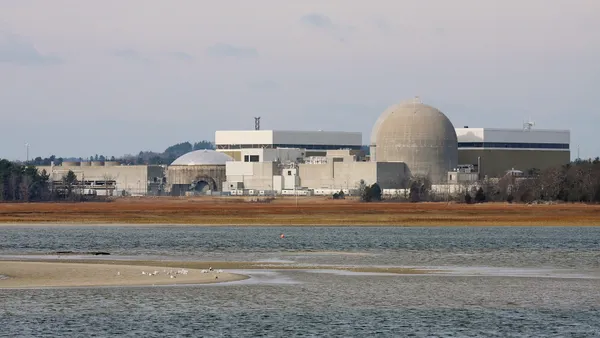Dive Brief:
- A pair of bills were advanced through the Michigan legislature earlier this week. Both aim to limit the state's clean energy standards and add more restrictions on the state's electric choice program, Midwest Energy News reports.
- One bill, S.B. 438, which passed the state Senate Energy and Technology Committee, would establish a 35% clean energy goal by 2025 — to be met by energy efficiency and renewable energy — but phase out a state program specifically for efficiency by 2025. The bill also revamped some net metering provisions that drew fire last year from solar advocates.
- The second bill, S.B. 437, would maintain the state's 10% cap on customers participating in the energy choice program, but enact more restrictions on customers and alternative energy suppliers to provide capacity. It also lays out a detailed integrated resource planning process designed to replace the clean energy standards adopted in 2008, according to Midwest Energy News.
Dive Insight:
Michigan's nascent solar market has gain some breathing room with some revisions to bills regarding net metering. But there are still concerns from clean energy advocates for the state's energy future.
S.B. 438 drew fire from solar advocates last year for provisions about net metering, which would have eroded the policy by requiring rooftop solar owners to purchase all the electricity they consume from the utility, while earning a lower wholesale rate for the excess energy exported to the grid.
But now, lawmakers revised the provisions, ensuring existing net metering customers would be grandfathered in the existing program. Two of Michigan's major investor-owned utilities, DTE Energy and Consumers Energy, backed the bill alongside Gov. Rick Snyder (R), the news outlet reported.
Michigan's 10% renewable portfolio standard (RPS) was met last year. Democrats in the legislature pushed to expand the RPS to 15% and 20% respectively, but were shot down by GOP majorities in both state houses.
The Michigan Conservative Energy Forum, while applauding how the bills are moved, worry that repealing the RPS "without any additional committments to renewable energy is going to stall the progress that Michigan has made as a national leader in renewable energy,” MCEF executive director Larry Ward said in a statement.












